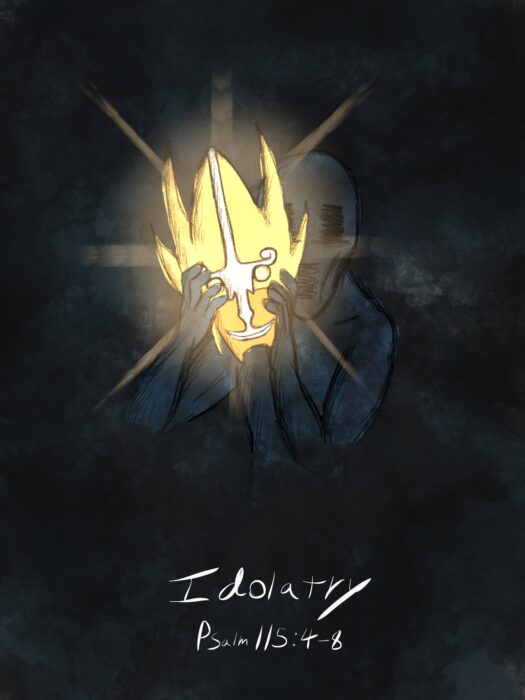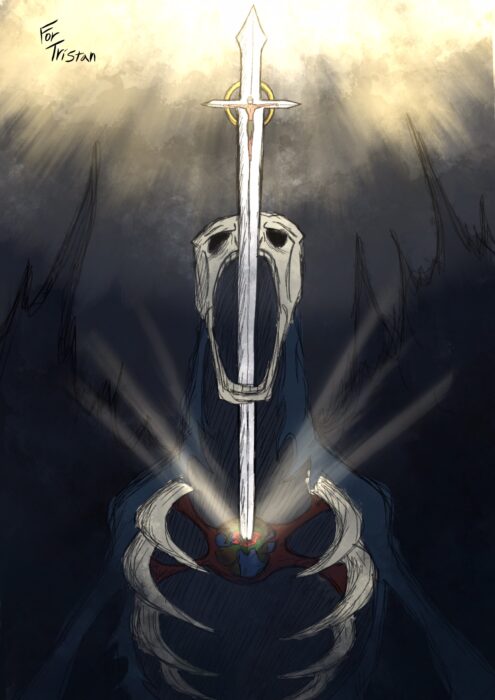
Romans 5:18-19, “Therefore, as one trespass led to condemnation for all men, so one act of righteousness leads to justification and life for all men. For as by the one man’s disobedience the many were made sinners, so by the one man’s obedience the many were made righteous.”
What is the “One Act of Righteousness”?
What is Christ’s “one act of righteousness” in this text? Whatever it is, it is an act of “obedience” to parallel and undo Adam’s unrighteousness and disobedience.
A natural answer would be His death on the cross, especially since this has largely been the emphasis of Romans 5:6-11. However, if all that was needed to ransom a people out of the old humanity in Adam and into the new humanity in Christ was the sacrifice of Himself on the cross, why did Jesus live a full human life? Why did He love and serve and minister and teach for 33 years? Did all of Jesus’ other acts of righteousness in His life not “count”? Was it only the cross?
In a sense, I think the answer to that question is, “Yes.” Yes, Jesus came to offer Himself up on the cross and by that death—that obedience of love—He overrides the sin of the first Adam and becomes the Final and True Adam of our race. However, that does not discount the rest of His earthly life. I don’t think it is quite right to divide Jesus’ life up into various acts of obedience (ie, feeding the 5,000, teaching His disciples, loving the poor, dying on the cross); rather the entire incarnate existence of the Son of God (and, indeed, His eternal existence) is a single, continuous act of love-born obedience to the Father.
An Eternal, Unceasing Obedience
We see this in Philippians 2:6-9. From His eternal equality with God, to His incarnation as a servant, to His death on the cross—Christ’s whole life is one act of obedience to the Father (or again, with even sharper clarity, in John 5:19-20). In this light, the cross is not a unique instance of obedience, instead it is the culminating act of Jesus’ life in which the total character of His life is perfectly displayed; it is the melody of which every moment of His life has been a note; it is the Name of which every act of His life has been a syllable; it is Himself—as He has eternally been in glory with the Father (John 17:5), as He was each moment of His incarnation—it is Himself proclaimed in full. And, therefore, it is His Father proclaimed in Him (John 8:28; 14:6; 17:1, 26).
The Son eternally, infinitely, perfectly loves the Father. Therefore the Son eternally, infinitely, perfectly obeys the Father (and—it seems to me—it is by this eternal, infinite, and perfect love-born obedience to the Father that the Son is the eternal, infinite, and perfect image of the Father whom to see is to see the Father, John 5:19; 12:45;14:6…but that is for another time). When Paul speaks of Christ’s obedience by which many are made righteous, yes, he is talking about the cross. But the cross cannot be separated from the Son’s entire incarnate (and, indeed, pre-incarnate) existence….rather, Calvary is the supreme, climactic, and definitive historical manifestation of the Son’s eternal obedience.
Counted To His Bride
And by this obedience the many are made righteous. If we are trusting Jesus Christ as Lord and God and Savior, then He is our head, He is our True Adam, He is the Bridegroom in whom we are hidden, by whose righteousness we are counted righteous. Just as a man’s name and rank are counted to his wife when they are married, so too Christ’s righteousness–Christ’s eternal act of perfect obedience–is counted to His Bride, the Church (individually and corporately) when she is united to Him by faith…….He alone is our firm ground of hope as we walk in this life and step out into the next.


